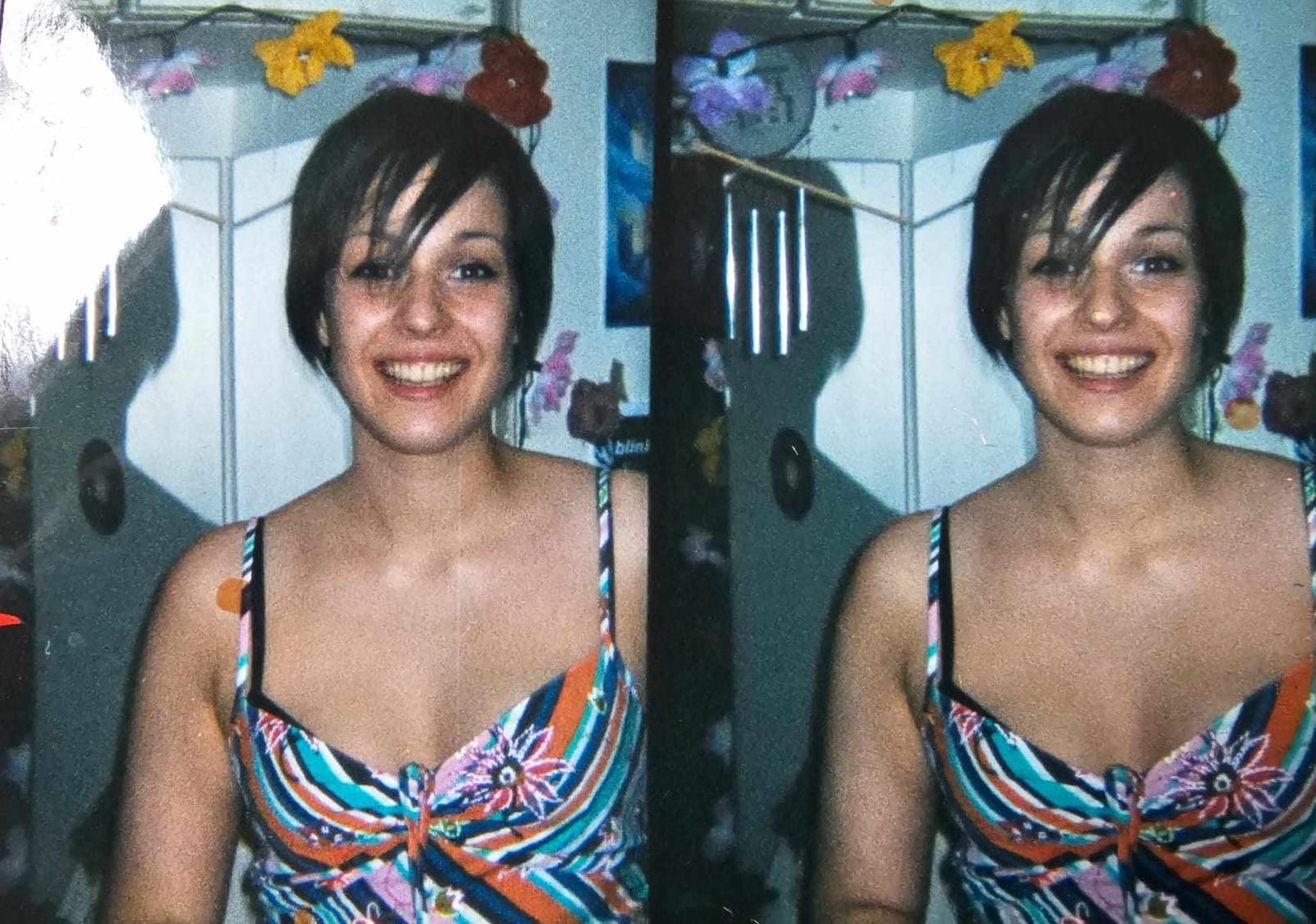The Spreadsheet and the Razor

It’s hard to distill how I felt at seventeen, but if I focus in and let the past wash over me, I can feel it: the vibration of desperation rising in my body.
Desperation distorts and disorients. It leaves you without a working compass, looking for signs, asking for directions. Daniel, who I met on my first day at uni in Aberdeen, gave directions like he owned the land and everything on it.
I’d learned early to ignore my own feelings. That the people who love us also hurt us. That I should always forgive and forget. Based on my experiences of racism, the dysfunction in my family, and the messages I absorbed just by being a young woman in the 90s, I believed there was something wrong with me. And if a man could so generously overlook my defects, then I should do the same for him.
Even after we had been sleeping together for months, Daniel held me firmly at arm’s length, frequently reminding me that I wasn’t his girlfriend. Remembering the times he’d cried in my arms, I secretly disagreed.
The thing about abusive men is that they’re only pushing a more extreme version of what society tells women every day. At first, you sense absurdity. But when you look for reassurance, you see the same messages, more quietly spoken, everywhere. You ask the people around you, and they sort of shrug their shoulders, unable to share your incredulity. So the abusive men become bold truth-tellers, simply saying what no one else will.
One evening, waiting for him to return from the bathroom, I paced his small room. Picking up objects from his shelves, I turned them in my hands: a cheap five-a-side football medal, a torn-edged ticket from a foam party. Working my way towards the window, I saw a piece of paper on top of his stereo. I picked it up.
A hand-drawn spreadsheet.
At the head of each row, a woman’s name. Lauren. Emma. Hazel. Kristie. Gemma. Annabel. Sophia. Some were my friends; one was the expensively tanned girl who lived in the flat above Daniel.
At the top of each column was a category. Face, arse, tits, body, hair, personality, humour, and, as he ran out of space, 'Sm', which I read as 'smile'. Each girl was scored from one to ten in each category, their totals added up in a final column.
We had been lined up for inspection. And although I was hurt, I wasn't surprised. It felt natural, just part of what it was to be me. To be a woman.
Reading through my scores, I saw that I’d lost points on body and smile and had the lowest score for hair: four out of ten. I made up some lost points with humour. Fourth overall.
When Daniel walked back into the room, I still had the paper in my hand. He caught my eye, amusement flickering across his face. He let me hold it for just a second longer, long enough for the shame to settle, before plucking it from my fingers, placing it back on his desk, and busying himself with his laundry basket.
I wanted to play it cool, but the voice I heard was small and hurt.
"Body, I get, I suppose, but... hair? And you said you loved my smile."
A snigger escaped from his mouth. I met his gaze, still holding out hope that I’d misread something, misunderstood.
"SM is not smile, Kristie." He tilted his head, letting the pause stretch just long enough to see my face change. "It’s smell. And the hair, well, that’s about..."
He gestured at my crotch with his eyes. My cheeks burned.
Perhaps sensing he had gone too far, he pulled me onto the bed, tickling me until my face softened. Lying there, I laced his fingers between my own and focused on our closeness. The breeze of his breath on my skin. When I shut my eyes, the shame could exist in a different part of time.
I felt him move closer and, between small kisses, he asked, "Do you think it’s being part-Pakistani that makes you... hairy?"
He continued to kiss me as I wondered if I ever had to open my eyes again - to face a world filled with so much shame. He dropped his hand from my chin and I felt the bed moving. I listened to the sounds of rummaging, drawers opening and closing. Then I felt his weight back on the mattress.
Finally giving in and opening my eyes, I saw him kneeling, arms extended towards me, both hands flat, proffering an orange plastic razor.
He was excited, thrilled even. "Get that score a bit higher?"
For a moment, I hovered on the edge of something: resistance, refusal, laughing in his face. But the moment passed. I nodded, and he got to work, with a Bic razor, an unsteady hand, and all the finesse of a child learning to colour inside the lines.
Afterwards, he remained between my legs, running his hands over his work. When that novelty wore off, he bounded out of bed and leaned over his desk. Spinning back around, pleased with himself, he presented me with the paper. I saw that he had crossed out the number four, replacing it with an eight.
I was pleased. I was proud. I was improved.
Part of me wants to enumerate all the things Daniel did to me over the next two years. To create a tangible record, outside his control, here on these pages. And I would, if words would not so spectacularly fail me. Each adjective feels puny, simple chronology inadequate, to capture the truth of an experience that destroyed me in every way a person can be destroyed.
The world had already done a pretty good job of convincing me that I wasn’t worth much. Daniel, with unwavering commitment, finished that task.
When writing my book, I knew these experiences had to be included. But I was clear on one thing: I would not let these men dominate the narrative. I think that’s often a mistake we make. Rather than centering the victim, we painstakingly describe the abuser, their actions. Grasp at their motivations. But the real work is in understanding how women are primed to accept this harm.
It was only after the birth of my first daughter that I began to understand: it would be my job to teach her something different. But I only knew what I knew. First, I needed to know something else.
With only the inkling that things needed to change, I found my way to therapy. There I learned something that unsettled me: although none of it was my fault, although none of it was deserved, I still allowed the abuse. That was confusing at first, but in time I understood that if I had learned to allow it, I could learn not to.
That is the harder truth: not just the harm itself, but the long education that taught me to accept it.
Because that's the part no one talks about. The part I had to figure out for myself.
I think every day of the women who never do. And the world that keeps the secret.
Excerpt adapted from my book Drystone - A Life Rebuilt. If you would like to support my work, you can buy it here
